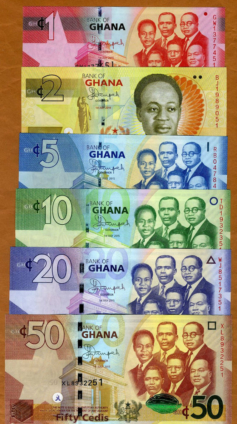More monies continue to sit outside the banking system, according to the Bank of Ghana’s Summary of Macroeconomic and Financial Data.
The growth of currency in circulation has hovered around 37% on the average from June to August this year.
It stood at 19.8% in January 2020, but rose to 36.7% in June 2020 and then further to 41.9% in July 2020, the highest so far this year.
It however fell to 39.3% in August 2020.
Fast forward, it is unclear whether it will continue to record high growth going into the December elections.
Could this suggest the economy is very liquid or consumers have decided to avoid the banking system to deposit their savings, amid covid-19?
There is however a school of thought that currency in circulation is however more or less important to central banks’ monetary policy relative to other types of money because the quantity of currency is relatively less flexible.
Demand Deposits
Demand deposits which is largely current account and highly prioritized by banks because it comes at virtually no cost has also seen some growth of more than 24% since May this year.
It started the year at 18.9% and then Jumped to 20.9% in February 2020, but fell to 14.8% in March 2020.
It has since been above the 20% mark, registering 26% growth in August 2020.
Savings and Time Deposits
Savings and Time Deposits which are largely savings and fixed deposit accounts [products] has also seen remarkable growth from the year to about 22.3% in August this year.
It began the year at a very low 0.7% growth and then shot up to 6.8% in March 2020, and then fell drastically in April to 3.3% but has since remarkable growth.
Banks highly regard savings and current deposits because they are considered as cheap funds that the financial intermediaries trade with to make excess income.
Foreign Currency Deposits
Foreign currency deposits have however witnessed significant decline in growth, from 36.9% in January to 18.1% in August this year.
It could help track the performance of the local currency which was the best performing currency globally in the first two months of 2020.
So far this year, the cedi has depreciated by only 2.9%, compared to about 12% last year
Latest Stories
-
Baltasar Coin becomes first Ghanaian meme coin to hit DEX Screener at $100K market cap
29 minutes -
EC blames re-collation of disputed results on widespread lawlessness by party supporters
43 minutes -
Top 20 Ghanaian songs released in 2024
1 hour -
Beating Messi’s Inter Miami to MLS Cup feels amazing – Joseph Paintsil
1 hour -
NDC administration will reverse all ‘last-minute’ gov’t employee promotions – Asiedu Nketiah
1 hour -
Kudus sights ‘authority and kingship’ for elephant stool celebration
2 hours -
We’ll embrace cutting-edge technologies to address emerging healthcare needs – Prof. Antwi-Kusi
2 hours -
Nana Aba Anamoah, Cwesi Oteng special guests for Philip Nai and Friends’ charity event
2 hours -
Environmental protection officers receive training on how to tackle climate change
2 hours -
CLOGSAG vows to resist partisan appointments in Civil, Local Government Service
3 hours -
Peasant Farmers Association welcomes Mahama’s move to rename Agric Ministry
3 hours -
NDC grateful to chiefs, people of Bono Region -Asiedu Nketia
3 hours -
Ban on smoking in public: FDA engages food service establishments on compliance
3 hours -
Mahama’s administration to consider opening Ghana’s Mission in Budapest
3 hours -
GEPA commits to building robust systems that empower MSMEs
4 hours

